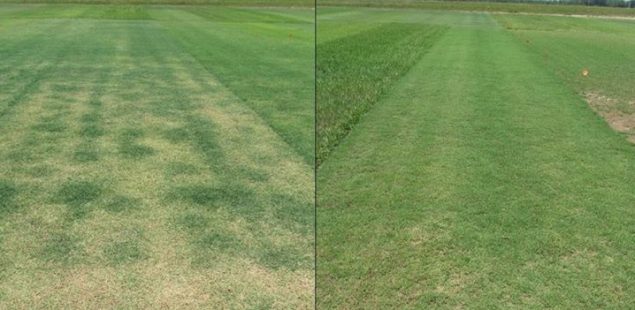Around one-fourth of the world’s acreage is occupied with grasslands. Grasses endure both cold and hot conditions. They are seen everywhere, such as lawns, parks, pastures, meadows, athletic fields, forests, golfs, etc. These stunning plants provide many benefits to humanity and nature. They are indestructible and give a vivid sense. There are many types of grasses, among which Bermuda grass is the one. It is a turfgrass and is also known by the name of crabgrass. It is also popular with other words that include star grass, wiregrass, and scotch grass. These grasses are recognized by their narrow grass blades that are commonly rich in green color. These species vary in length from 2-15 cm. These grasses are preferred everywhere due to their low maintenance cost and long-lasting attribute.
Tifway 419 Bermuda Vs. Common Bermuda Benefits
Tifway 419 is a hybrid type of bermudagrass, and it stands out over common bermudagrass due to various reasons. It has good disease resistance, more turf density, lower seed heads, improved weed resistance, smooth and silky texture, and more vibrant color. It is used in a variety of applications that include fairways, golf courses, tees, lawns, athletic fields, etc. It is produced from a cross between the African Bermuda and a Common Bermuda. It is packed with thick patches of vibrant green grass with narrow-bladed leaves. These hybrid species of bermudagrass are formed with the assistance of vegetative options instead of using seeds. Those vegetative options include soding, plugging, and sprigging.
Tifway 419 rapidly grows in areas where there is a warmer climate. It permits shade only up to 20% and prefers full sunlight. It has a great drought, heat, and frost tolerance. It transforms into a dazzling green color in the Spring season and becomes dull in the Winter Season. However, it recovers quickly again in warming temperatures due to its excellent traffic tolerance and rapid adaptability. It can permit soil concentration up to 2500 ppm. Also, it can bear droughts with lesser water availability. 1”-2” or 25mm-30mm of water is preferred per week for this lashing grass to remain sustained. If the weather is too dry or there are fewer chances of rainfall than water the grass twice per week.
Tifway shows excellent weed control when it is adequately maintained. It nicely competes with the nasty weeds by bearing the impact of herbicides. It also permits pests and other nasty insects and gets fully recovered after the pest treatments. The growth of Tifway is dependent on soil mechanics. It grows rapidly when the soil pH ranges from 5.5 to 7.0.
Tifway 419 Bermuda Vs. Common Bermuda Problems:
Some of the common problems that occur while using a Tifway 419 Bermuda Grass are listed below.
● Less Shade Resistance
Like other bermuda grasses, Tifway 419 also requires full sunlight. Therefore, it is necessary to plant it in an area where there is excessive sunlight; otherwise, it may become dull and inactive if planted on the wrong side. It only permits 20% shade resistance. So, it is mandatory to choose an appropriate area for growing any of the bermuda grasses so that they remain sustained.
● Need for Fertilization and Herbicides
Tifway 419 commonly needs up to six fertilization annually to remain green and beautiful. It is greatly dependent on soil mechanics. Favorable conditions include soil with a pH range of 5.5 to 7.0, potassium level of 150 to 200 lbs/acre, and phosphorous level of 100 lbs/acre. Also, 1lb/1000 sq. ft. of nitrogen fertilizer application is recommended for healthy plant growth during Spring. However, nitrogen-phosphorus-potassium fertilizer is desired during Summers. A weed preventer is also very necessary for early to mid-Fall.
● Frequent Mowing Requirement
Tifway 419 requires frequent mowing after every four or five days. If the moving is done after seven days, then there are chances that you may cut off more than a third of the leaf blades and will be left with the brown stems. Therefore, it is essential to do good maintenance of this grass frequently to look pleasing and stunning.
Tifway 419 Bermuda Vs. Common Bermuda Cost
Tifway 419 Bermuda Grass is less expensive than common Bermuda Grass. The price for Tifway 419 Bermuda per pallet is $135.00 – $224.57, whereas the cost for common Bermuda Grass is $150-$380 per pallet.



